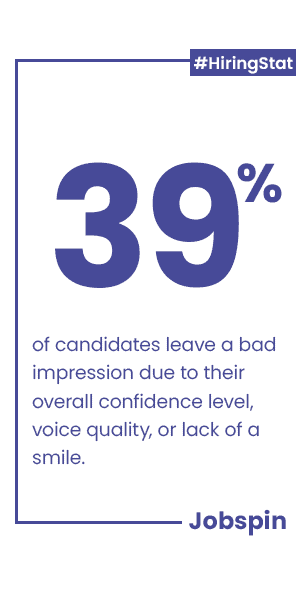The COVID-19 pandemic reshaped the way we work, from remote collaboration to the virtual hiring process. Phone and video interviews became the norm, allowing recruiters and candidates to connect safely.
However, with the demand for a return to the office, in-person interviews are making a comeback. Recruiters now play a pivotal role in helping candidates prepare for these face-to-face encounters. In this article, we’ll explore how recruiters can effectively assist candidates in transitioning back to in-person interviews, covering everything from properly structuring your communications to strategizing with your candidates.
Helping candidates familiarize themselves with their interviewers is the first step to helping them feel more at ease. Recruiters should consider sharing information about the hiring team, including:
including:
Please briefly overview the interviewers, including their names, titles, and possibly their LinkedIn profiles. This can help candidates research and find common ground with their interviewers.
As a recruiter, you may know how a hiring manager or company conducts their interview process. Mention any unique preferences the known interviewers may have. Be sure to update the candidate if the roster changes between your interview preparation session and the actual interview.
With any candidate, a recruiter should offer advice on how they can prepare mentally and emotionally by:
It never hurts to review responses to common interview questions with the candidate. A mock interview helps to build an understanding not only of the candidates’ feelings towards the role but also of what topics they should spend time on.
You can provide your candidates with questions that can help showcase their interest or engagement toward the role. These questions can demonstrate their research and understanding of the company and their goals for the position.
It’s never a bad idea to convey the importance of positive body language, such as a firm handshake, maintaining eye contact, and adequately communicating attention.
The best way to alleviate stress is to empower your candidates with a detailed itinerary for their interview day. This should include the following:
Share the exact interview location, including the building, floor, and room number. It doesn’t hurt to reference landmarks or notable features that make it easier for candidates to find their way.
Inform your candidates of the entry process for their interview location. This can include information for building security protocols, identification requirements, and the contact person’s name and phone number in case any issues occur.
Even as the restrictions have been lifted, companies may have safety measures put in place to make their employees comfortable. Be sure to inform the candidate of any social distancing or sanitization measures currently in the area to ensure the candidate is comfortable during the interview.
Going back to in-person interviews requires guidance for candidates. Be sure to send them a friendly set of reminders for what to bring and proper attire for the interview, including:
Provide clear instructions on the dress code or expectations for the interview. Be sure to specify whether it is business formal, business casual, or if the employer uses other dress codes.
Remind candidates to bring multiple copies of their resume, reference lists, portfolio samples, and any relevant certifications or licenses.
Suggest bringing a notebook and pen for taking notes, but advise against carrying large bags or backpacks.
As a recruiter, your candidate expects you to clarify what they can expect after the interview. It’s best to create an automated message that covers the following points:
Explain the anticipated timeline for feedback and the potential interview process, including additional rounds or possible skill assessments
Encourage candidates to send thank-you notes to interviewers promptly, emphasizing the importance of post-interview etiquette.
In your post-interview communication, include a link to schedule time with you to chat about their interview experience; typically, it is best to set your calendar to only allow booking 24 hours past the interview date. This ensures you have some information if the candidate is no longer being considered.
As in-person interviews regain prominence in the hiring process, recruiters play a vital role in helping candidates make a seamless transition.
This is why effective communication, with personalized automation, is more critical than ever. SmartSearch helps recruiters convey everything from logistical details to interview preparation tips from one powerful platform. By providing comprehensive support and guidance, recruiters can facilitate a smooth and triumphant return to in-person interviews for candidates and organizations. To see how SmartSearch can help, schedule a demo today.